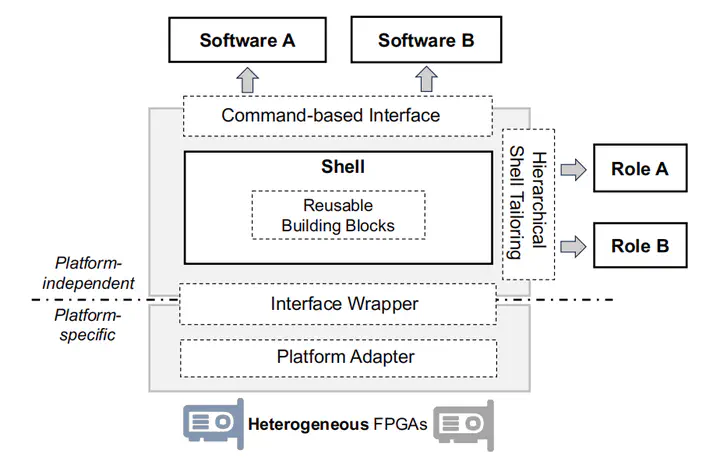 Image credit: Unsplash
Image credit: Unsplash
Abstract
FPGAs are gaining popularity in the cloud as accelerators for various applications. To make FPGAs more accessible for users and streamline system management, cloud providers have widely adopted the shell-role architecture on their homogeneous FPGA servers. However, the increasing heterogeneity of cloud FPGAs poses new challenges for this architecture. Previous studies either focus on homogeneous FPGAs or only partially address the portability issues for roles, while still requiring laborious shell development for providers and ad-hoc software modifications for users. This paper presents Harmonia, a unified framework for heterogeneous FPGA acceleration in the cloud. Harmonia operates on two layers: a platform-specific layer that abstracts hardware differences and a platform-independent layer that provides a unified shell for diverse roles and host software. In detail, Harmonia provides automated platform adapters and lightweight interface wrappers to manage hardware differences. Next, it builds a modularized shell composed of Reusable Building Blocks and employs hierarchical tailoring to provide a resource-efficient and easy-to-use shell for different roles. Finally, it presents a command-based interface to minimize software modifications across distinct platforms. Harmonia has been deployed in a large service provider, Douyin, for several years. It reduces shell development workloads by 69%-93% and simplifies role and software configurations with negligible overhead (<0.63%). Compared with other frameworks, Harmonia supports cross-vendor FPGAs, reduces resource consumption by 3.5%-14.9% and simplifies software configurations by 15-23x while maintaining comparable performance.